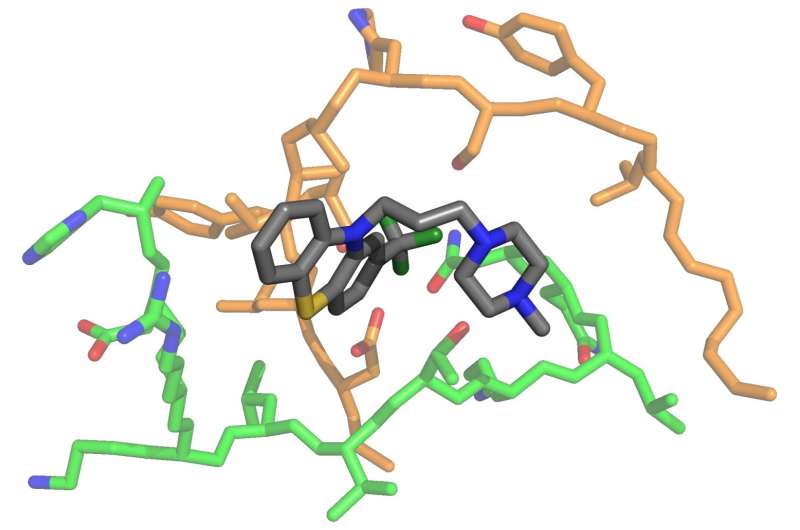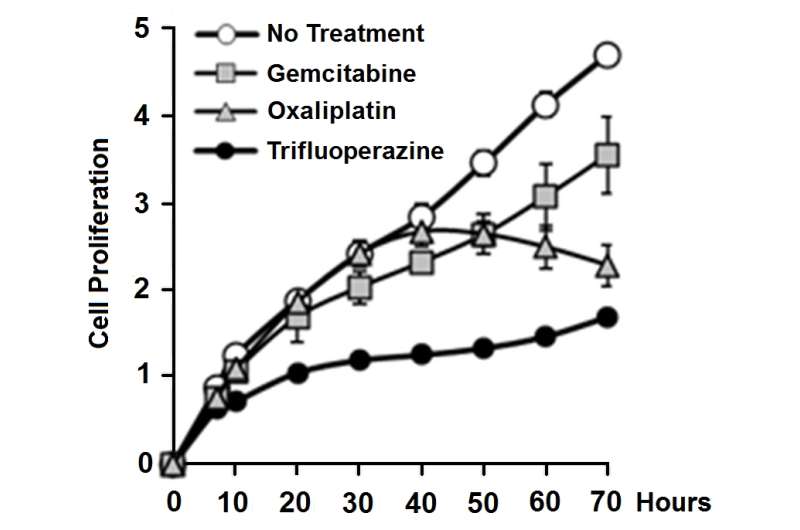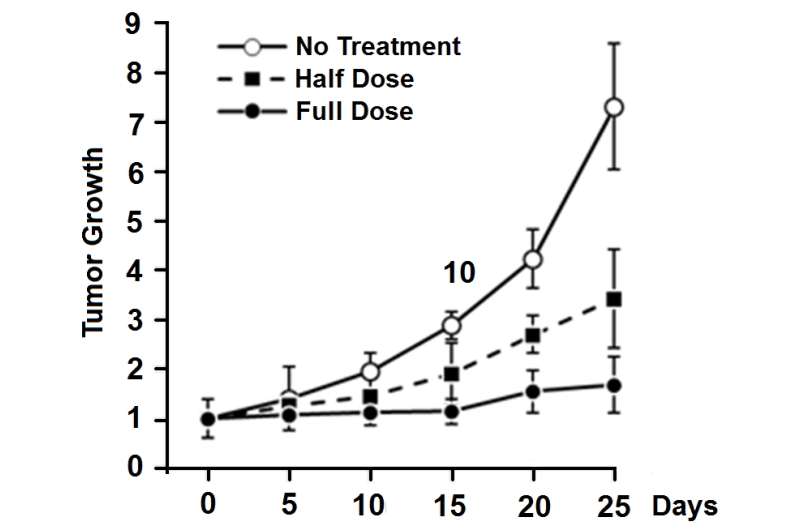New hopes for pancreatic tumor from an antipsychotic drug

Ductal carcinoma is the most common pancreatic tumor. Its recovery rates are low, not only due to difficulties of early diagnosis, but also because of the absence of a specific pharmacological treatment. New hopes are coming from a study published in Scientific Reports by the Nanotechnology Institute of CNR, unit of Rende, in collaboration with a team of French and Spanish researchers. A molecule long used to treat anxiety has been found to interfere with the activity of a protein involved in the cancer development process.
Pancreatic cancer is one of the most lethal tumors, and up until now, the only drugs available to fight it are generic chemotherapy treatments. The protein Nupr1 belongs to the special class of 'intrinsically disordered proteins' and its involvement in pancreatic cancer pathology was demonstrated in the 1990s by a French team at the National Institute of Health in Marseille. A molecule capable of inhibiting this protein has been found through a study at the Institute of Nanotechnology of the National Research Council of Italy (Cnr-Nanotec).
"The research has been performed starting from the screening of more than 1000 drugs already approved for various therapeutic indications," says Bruno Rizzuti of Cnr-Nanotec in Rende. "The combined use of experimental techniques and computer simulations has allowed us to identify some of those drugs capable of interacting with the protein Nupr1. In vitro experiments have afterwards shown that the selected compounds were able to lower the vitality of tumor cells, reduce the ability of migration, and completely suppress the possibility of colony formation. The most effective compound has been tested in vivo on human pancreatic cancer cells transplanted on mice, and proved to completely arrest the development of the disease. The molecule– known as trifluoperazine, and used until now only for its anti-psychotic action – has demonstrated an antitumor efficacy even higher than the most powerful chemotherapy treatments available. Furthermore, this study shows that this new molecule constitutes not only an alternative to such previously known drugs, but can be combined with them to increase the overall therapeutic effect."

Additionally, this work is an important step on the research into proteins with disordered structure. "According to one of the dogmas of classical biology," says Rizzuti, "the conformation of a protein should be unique and well defined to allow each of these 'molecular machines' to carry out a specific function. Disordered proteins overturn the validity of this principle, and due to their flexible structure, are able to perform multiple functions of cell communication and regulation. However, the absence of well-defined structural elements appeared to be an insurmountable obstacle to proceed to a rational design of selective drugs to hinder their action."
The demonstration of the possibility of identifying active molecules that inhibit disordered proteins is an important step forward from the point of view of basic research, because it changes completely the scenario in the fight against numerous pathologies. In fact, it opens up the concrete possibility of multiplying the number of molecular targets that could be hit through a focused use of pharmaceuticals.

More information: José L. Neira et al. Identification of a Drug Targeting an Intrinsically Disordered Protein Involved in Pancreatic Adenocarcinoma, Scientific Reports (2017). DOI: 10.1038/srep39732



















